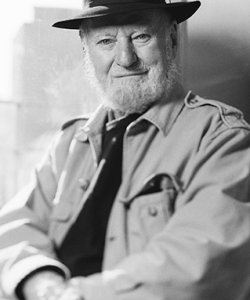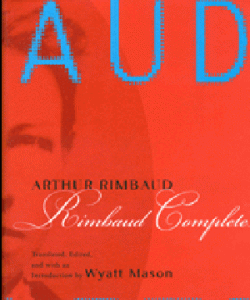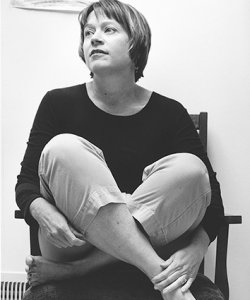Poetry’s Eternal Graffiti: An Interview With Lawrence Ferlinghetti

An interview with poet Lawrence Ferlinghetti about the Beat generation, City Lights Bookstore, and Ezra Pound.
Jump to navigation Skip to content

An interview with poet Lawrence Ferlinghetti about the Beat generation, City Lights Bookstore, and Ezra Pound.
Kathryn Starbuck has been around poets and poetry all her life, but she never wrote a single poem herself until about seven years ago, when she was grieving over the recent deaths of her parents, brother, and especially her beloved husband, the poet George Starbuck, who died in 1996 at the age of sixty-five, after a twenty-two-year battle with Parkinson’s Disease.

In the world of hip-hop, Lewis Turco would be considered an “Original Gangsta,” an “O.G.”—a title given to someone who started it all. In the more genteel business of poetry writing, however, Turco would be called an “Institution,” and what he started was nothing less than a renewed appreciation of poetic forms. Since its first edition in 1968, his reference book The Book of Forms has become a standard text for poets of all stripes. A cross between The Joy of Cooking and According to Hoyle for poets, Turco’s text remains a rarity: a reference book with personality. Turco’s lucid, empathetic entries on every form under the sun continue to serve many poets writing their first pantoums or settling drunken bets on the rhyme scheme of the rimas dissolutas (abcdef abcdef ghijlk ghijlk ..., if written in sestets).
Six months ago, John Barr was named president of the Poetry Foundation. While many poets had never heard of the former Wall Street investment banker (although he is the author of six books of poetry and served on the board of directors of Yaddo as well as that of the Poetry Society of America) many are now acutely aware of the leader of the organization that received a pledge of $100 million over the next thirty years from pharmaceutical heiress Ruth Lilly.
Naropa University has established the Naropa Audio Preservation and Access Project to archive the program's vast holdings of recorded readings, lectures, panel discussions, and workshops.

Wyatt Mason's Rimbaud Complete, published by Modern Library in March, is a translation of the complete writings of French poet Arthur Rimbaud (1854-1891). The book contains all of his poetry—from his earliest juvenilia to his later poems, which Rimbaud wrote in his early twenties, before he stopped writing poems altogether. The volume contains fifty pages of previously untranslated material, including all the poet's earliest verse, a school notebook, and a rough draft of his best known poem A Season In Hell.
The Academy of American Poets, the 68-year-old literary nonprofit, has made headlines recently, but not for its latest party or prizewinner. In September the organization, best known for founding National Poetry Month, announced that Executive Director William Wadsworth had been asked to resign by board of directors president Henry Reath. And on November 7, the board voted to lay off eight of the Academy's seventeen employees and to subdivide its new office and rent out half of the space, which the group had renovated and moved into in August.
In honor of poet Robert Bly's 75th birthday last month, the Minneapolis-based Loft Literary Center, in conjunction with the McKnight Foundation, revived Bly's innovative literary magazine—originally titled The Fifties, in honor of the decade in which it was founded—by publishing the first issue of The Thousands.
Elizabeth Alexander's new collection, Antebellum Dream Book, deals with the image of the body, a theme she visits often in her previous works. "If you let a body speak," she says, "it gives you access to all sorts of concrete sensations that are vital, the stuff of poetry, the way a poem convinces." In this interview with Natasha Trethewey, Alexander speaks to her use of race, urban life, history, and of course, the body.

In such a saturated culture, how can a poet clear away uninfluenced space from which to write a poem that is authentic, original?